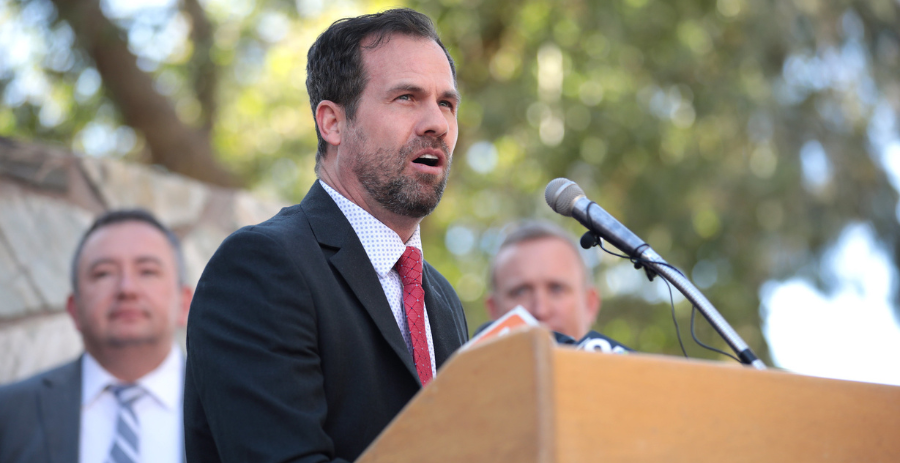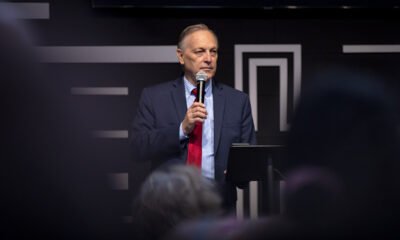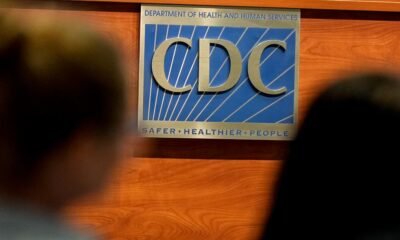2024 Election News
Top Republicans Rally Behind Fontes Amidst Controversy Over 100,000 Dubious Voter Registrations

In a significant legal development, top Republican officials in Arizona are aligning with Democratic Secretary of State Adrian Fontes, advocating that nearly 100,000 registered voters lacking proof of citizenship should receive full ballots for the upcoming elections. This decision emerges amidst a complex legal backdrop surrounding voting eligibility in the state.
On September 18, House Speaker Ben Toma and Senate President Warren Petersen submitted new documents to the Arizona Supreme Court. They acknowledged that a voter-approved law prohibits individuals without verifiable citizenship from voting in local, legislative, or state contests. However, they do not contest Fontes’s findings regarding the deficiency of citizenship proof for these voters.
Attorney Thomas Basile, representing Toma and Petersen, emphasized that the predicament is not due to any wrongdoing by the voters. He argued that these individuals were led to believe by officials they qualified as full-ballot voters.
Basile pointed out that typical procedures would involve notifying the affected voters of the missing documentation and providing a means to rectify the issue within a specified timeframe. However, with early ballots set to be distributed soon, this standard process is not feasible, prompting a push for full ballots to be issued.
The lawmakers’ position is at odds with Maricopa County Recorder Stephen Richer, a Republican, who argues that he lacks the legal authority to send complete ballots without proof of citizenship. Richer contends affected voters should receive ballots limited to federal offices, as federal law does not impose citizenship verification for votes cast for president or congressional candidates.
Fontes has urged the justices to allow all registered voters the right to vote in full. He argued that there is no legal basis for segregating voters into federal-only categories, as proposed by Richer.
Despite the differing stances, Richer’s spokesperson stated that he remains neutral regarding the GOP lawmakers’ input, viewing the ongoing litigation as a “friendly lawsuit” aimed at achieving clarity from the court swiftly.
Interestingly, Toma and Petersen have previously argued that those lacking documented proof of citizenship should not be allowed to vote, a standpoint the U.S. Supreme Court has rejected. However, Basile argues that the current circumstance warrants a different approach, as affected voters have long operated under the assumption that they could participate in all elections.
The legal issue traces back to a 1996 law mandating proof of legal presence for driver’s licenses. In 2004, voters expanded this requirement to voting, although individuals with licenses issued post-1996 are presumed to be eligible. This led to a bureaucratic oversight where 97,928 individuals were not asked for proof of citizenship.
Fontes revealed that a significant portion of the affected voters fall within the 45-60 age bracket, with Republicans making up over 37% of this group. Thus, the denial of full-ballot access could disproportionately impact GOP candidates and issues.
Basile did not address the partisan implications directly but highlighted the unfairness of disenfranchising voters who have consistently been allowed to vote in all races. He asserted that there is no evidence suggesting any of the affected voters are non-citizens.
In light of time constrictions, Basile urged the justices to permit the affected voters to cast ballots in all elections. After the election, they could be notified to submit the necessary documents to verify their eligibility.
The Arizona Supreme Court plans to evaluate the conflicting arguments from Fontes and Richer by the end of the week. However, there is no legal obligation for the court to decide the matter conclusively, potentially leaving election officials in a state of uncertainty.

















